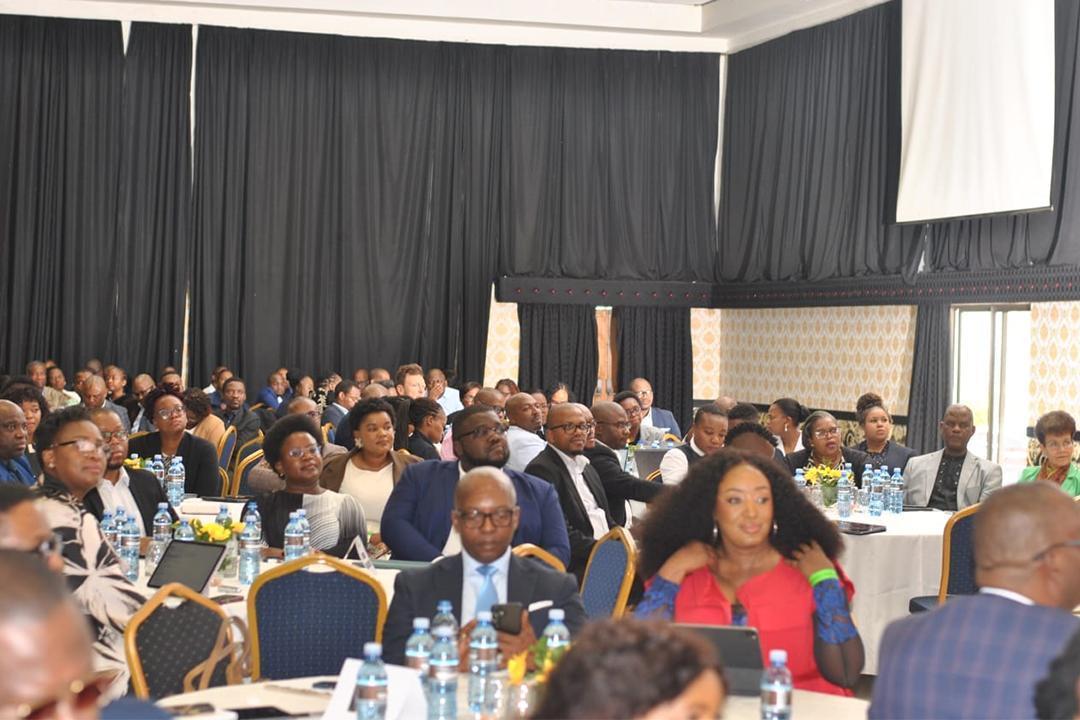Africa-Press – Eswatini. Businesses in Eswatini have been urged to adopt ethical leadership, stakeholder inclusivity, and sustainable governance practices to strengthen accountability and drive long-term growth.
The call was made during the official launch of the King VTM Code on Corporate Governance at Esibayeni Lodge in Matsapha on 6 November 2025.
The Code, developed by the Institute of Directors in South Africa and the King Committee, introduces 13 principles designed to promote ethical leadership, integrated thinking, and responsible corporate citizenship. The event was supported by REDI Consulting, which played a key role in bringing the global governance framework to Eswatini.
Dr Sikhomba Gumbi, Chief Executive Officer of REDI, described the launch as a milestone for corporate governance in the country. He said King VTM represents a shift towards ethical, transparent, and inclusive governance, emphasising that businesses should not be driven solely by profit but also by social responsibility.
“We are here to present to Eswatini the new corporate governance standard, which is called King VTM because it is the fifth report in the series,” Dr Gumbi said. “It was launched in South Africa just last week, and we have gathered CEOs and board members to explain what this new standard means and how it differs from previous frameworks.”
Nathi Dlamini, CEO of Business Eswatini, highlighted the private sector’s role in implementing the Code locally. He explained that King VTM encourages businesses to consider environmental, social, and governance (ESG) issues alongside profitability, aligning with current priorities in Eswatini.
“This King VTM report challenges all businesses to look beyond profit and consider the impact they have on people and communities,” Dlamini said.
Dr Nozizwe Mulela stressed the Code’s relevance across sectors, noting that strong governance promotes ethical leadership and reduces corruption. She said competent, ethical leaders are needed to ensure that profits do not come at the expense of communities and systemic integrity.
Dr Lungile Dlamini, Chief Executive Officer of the Municipal Council of Manzini, urged organisations to adapt King VTM principles to local contexts rather than simply copying models from elsewhere, noting the importance of tailoring good governance practices to suit national and municipal environments.
Delivering the keynote, Advocate Anna Marie van der Merwe, Executive Chair of Fluid Rock Governance Group in South Africa, described King VTM as a transformative tool for modern organisations. She said the Code empowers leaders to act ethically, responsibly, and sustainably in a rapidly changing world, encouraging them to understand how their organisations impact both society and the environment.
Advocate van der Merwe outlined the 13 principles of the Code, including ethical culture, stakeholder relationships, ESG integration, and independent oversight, and highlighted the concept of double materiality, which recognises that organisational success depends on value created for both stakeholders and broader socio-ecological systems. She asked attendees to reflect on the independence of their leadership structures, emphasising that true governance requires embedding independence, accountability, and transparency in all aspects of decision-making.
Rooted in the Ubuntu-Botho philosophy, the Code promotes inclusivity, community engagement, and shared value creation. Advocate van der Merwe concluded that organisations adopting King VTM would build resilience, earn stakeholder trust, and create lasting value for society.
REDI Consulting reaffirmed its commitment to supporting Eswatini organisations in implementing the new standards, assuring that governance reforms would translate into practical, transformative action.
For More News And Analysis About Eswatini Follow Africa-Press







